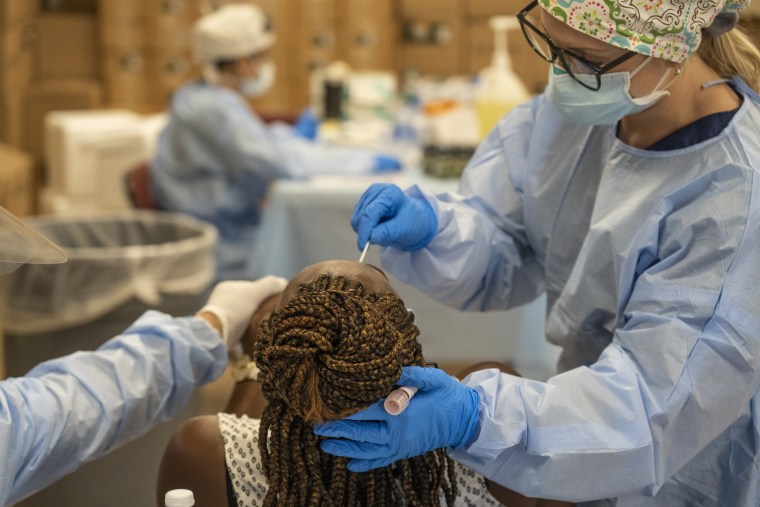As the number of cases of coronavirus continue to rise in some parts of the country, you might find yourself wondering if a cough or runny nose is allergy-related or something more serious.
Should you get tested? And is it worth getting an antibody test to see if you’ve had COVID-19 in the past?
Know Your Value founder and “Morning Joe” co-host Mika Brzezinski recently asked emergency physician and former health commissioner for Baltimore, Dr. Leana Wen, for her top tips. Dr. Wen said you should consider asking yourself the following questions:
1. What kind of test is available?
There are two basic types of tests: a polymerase chain reaction (PCR) test to see if you currently have COVID-19 and an antibody test to see if you have been exposed before. The test that most people will be getting (and what the rest of the tips refer to) is the PCR test because they want to know if they are carrying the virus and could infect others.
The test that most people will be getting (and what the rest of the tips refer to) is the PCR test because they want to know if they have the infection and could infect others.
“The antibody test is interesting as a curiosity. For example, if you're wondering whether the fever and cough you had a couple of months ago was actually due to COVID-19, you might consider this test,” said Dr. Wen. “But I'd caution against the use of the antibody test for your decision-making; just because you have the antibody doesn't mean that you are protected from getting the disease. To put it another way, I wouldn't want people to have false reassurance that they wouldn't get infected because they have the antibody.”
2. Do I need a test?
You need a test if you have symptoms of COVID-19, said Dr. Wen.
“You'd also need a test if you have significant contact with someone who has tested positive, defined by CDC as close contact for more than 15 minutes. Some employers may require testing to go back to work, or patients may need to take a test before elective procedures,” she added.
3. How will it change what I do?
If you don't fall into one of these categories above, consider why you'd be taking the test, specifically, how would it change your actions, advised Dr. Wen.
“For some people, it would: for example, if you are about to visit an elderly relative, a newborn baby, or someone else who is likely to become severely ill from COVID-19,” she said. “Taking the test before you see them and minimizing your risk factors in the meantime, could determine whether you see your loved one up close or whether you should keep physically-distanced.”
4. How long will it take to get the results?
Some labs can get you a test result within 24 hours. Others might take a week or even 10 days or two weeks, said Dr. Wen. “If it takes that long to come back, the result is essentially worthless. The test only measures one point in time. So if you were using the test to determine whether you could safely see relatives, by the time you get your negative result, you could have gotten infected in the meantime. It would be just as effective to quarantine yourself instead.”
5. Will it take away from others who need it?
Many labs are experiencing a major backlog because of surges of infections in numerous parts of the country, noted Dr. Wen. “If you need to take the test for the reasons listed in number two, you should get the test. But if the test results take too long for them to be useful, or you just want to know for the sake of knowing, you may want to postpone the test. You can also ask the facility if there is a backlog or a long line: if so, perhaps you could wait until testing becomes much more widespread and accessible.”
